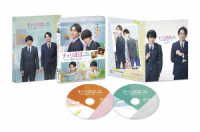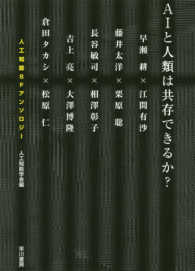Full Description
Evaluation has played a fundamental role throughout the history of higher education. It has been key to institutional missions and for accountability concerns for public funding policy and fiscal oversight. In the last 30 years, there has been focused attention on the quality of education and student learning. Campuses have stepped up their initiatives to evaluate educational outcomes and communicate these to their constituencies just as regional, state, and national efforts have emerged regarding assessment of learning outcomes. In this context, various methods and approaches to evaluative inquiry have emerged to support efforts to increase the effectiveness and efficiency of instructional practice and curriculum for higher learning. This edition examines perspectives on evaluation studies addressing higher education learning from program- to institution-based studies and critiques of practice to document successes and identify significant challenges that face evaluators and the collaborating educators in the continuing development of higher education.This examination represents both an investigation into the particular insights that evaluative inquiry contributes to the scholarship and practice of higher education and a reflection on the evaluation expertise that can be applied across contexts of professional practice and program development. This is the 151st issue in the New Directions for Evaluation series from Jossey-Bass. It is an official publication of the American Evaluation Association.
Contents
EDITORS NOTES 7 William H. Rickards, Monica Stitt-Bergh 1. Higher Education Evaluation, Assessment, and Faculty Engagement 11 William H. Rickards, Monica Stitt-Bergh An overview of learning outcomes assessment in higher education at the program and institutional levels, including challenges and connections to evaluation practice. 2. Building Evaluation Capacity Through CLIPs: Communities of Learning, Inquiry, and Practice 21 Beverly L. Parsons, Chris Y. Lovato, Kylie Hutchinson, Derek Wilson The use of and lessons learned from a Communities of Learning, Inquiry, and Practice (CLIPs) model in higher education to build evaluation capacity. 3. Evaluating a General Education Program in Transition 37 John F. Stevenson, Sandy Jean Hicks, Anne Hubbard A reflective case study of a participatory, utilization-focused approach in higher education learning outcomes assessment and implications for the broader domains of evaluation conceptualization and practice. 4. Engaging Faculty in an Evaluative Conversation 53 William H. Rickards, Jeana Abromeit, Marcia Mentkowski, Heather Mernitz A study of the work of faculty and evaluation researchers as they implemented and evaluated a general education program and an analysis of faculty engagement, reporting, and meaning-making. 5. Assessment Capacity Building at a Research University 69 Monica Stitt-Bergh A description of the Evaluation Capacity Building (ECB) efforts at a university and a study of the effect on a set of outcomes. 6. Implementing Pre-Post Test Designs in Higher Education Evaluations 85 Aaron Tesch The implementation of a pilot project to evaluate courses and an education program with pre-post designs in an undergraduate psychology program. 7. Assessment of Student Learning Outcomes: Evaluator and Client Communication 97 Charles Secolsky, Clarice Sng, Ellen Wentland, Dwight L. Smith III Seven scenarios from higher education are used to discuss challenges when working with faculty on learning outcomes assessment. 8. Recursive Validity and Authentic Outcomes 109 David Eubanks, David Gliem A discussion of recursive validity applied to learning outcomes assessment in higher education to discuss a difficult problem in higher education: how to assess learning outcomes in a way that is convincing to stakeholders. 9. Beyond the Rhetoric: Evaluation Practices in Higher Education 123 Monica Stitt-Bergh, William H. Rickards, Tamara Bertrand Jones A synthesis of the themes from this NDE issue that stresses the importance of evaluator faculty engagement and evaluator skill and cultural competence. INDEX 133







